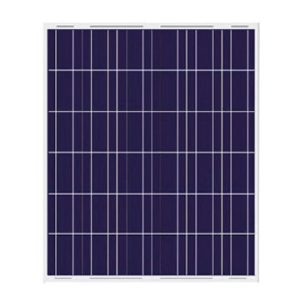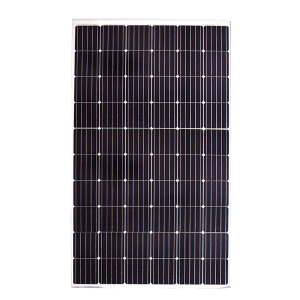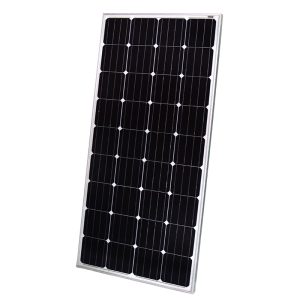As energy costs continue to rise and environmental concerns grow, more homeowners are turning to solar power as a sustainable and cost-effective solution. One of the most popular solar system sizes for residential installations is the 5 kW system, which can significantly reduce your electricity bills and carbon footprint. In this comprehensive guide, we’ll explore the cost of a 5 kW solar system, factors that influence the price, and the potential savings you can expect.
Understanding Solar System Costs
The cost of a solar system is typically measured in dollars per watt ($/W), which represents the price for each unit of power capacity. According to the National Renewable Energy Laboratory, the average cost of residential solar systems in the United States is around $2.77 per watt as of January 2022. This means that a 5 kW (5,000-watt) solar system would cost approximately $13,850 before any incentives or tax credits.
However, it’s important to note that solar system costs can vary significantly depending on several factors, including:
- Location: The cost of labor, permitting fees, and local incentives can impact the overall price.
- Equipment Quality: Higher-efficiency solar panels and premium components tend to be more expensive but can provide better long-term performance and savings.
- System Size: Larger systems generally have a lower cost per watt due to economies of scale.
- Installation Complexity: Factors like roof type, shading, and electrical panel upgrades can increase installation costs.
To get an accurate estimate for your specific situation, it’s best to request quotes from multiple solar installers in your area.
Incentives and Tax Credits
One of the biggest advantages of going solar is the availability of various incentives and tax credits that can significantly reduce the upfront cost. The most notable incentive is the Federal Solar Investment Tax Credit (ITC), which currently provides a 30% tax credit for residential solar systems installed before the end of 2032.
For example, if you install a 5 kW solar system at the average cost of $13,850, you would be eligible for a $4,155 tax credit, bringing the net cost down to $9,695.
Additionally, many states and local governments offer their own incentives, such as rebates, tax exemptions, and performance-based incentives (PBIs). These incentives can further reduce the cost of your solar system and improve its return on investment (ROI).
To find out what incentives are available in your area, you can visit the Database of State Incentives for Renewables & Efficiency (DSIRE) or consult with local solar installers.
Potential Savings and Return on Investment
One of the primary reasons homeowners invest in solar power is the potential for long-term savings on their electricity bills. The amount of savings you can expect depends on several factors, including:
- Your current electricity rates: The higher your electricity rates, the greater the potential savings from solar power.
- System size and production: A larger system will produce more electricity, potentially offsetting a greater portion of your electricity consumption.
- Net metering policies: Many utilities offer net metering, which allows you to receive credits for any excess electricity your solar system generates and sends back to the grid.
According to the Solar Energy Industries Association (SEIA), a typical residential solar system can save homeowners between $10,000 and $30,000 over the system’s 25-year lifespan.
To calculate the potential savings and return on investment for your specific situation, you can use online solar calculators or consult with local solar installers. They can provide estimates based on your energy consumption, local electricity rates, and the projected production of your solar system.
Choosing the Right Solar System Size
When it comes to selecting the right solar system size for your home, there are a few key factors to consider:
- Energy Consumption: Review your past electricity bills to determine your average monthly and annual energy consumption. This will help you estimate the system size needed to offset a significant portion of your electricity usage.
- Roof Space and Orientation: The available roof space and its orientation (direction it faces) will impact the number of solar panels you can install and their potential energy production.
- Future Energy Needs: If you plan to add energy-intensive appliances or electric vehicles in the future, you may want to consider a larger system to accommodate increased energy demands.
- Budget: While larger systems generally provide greater savings in the long run, they also require a higher upfront investment. Consider your budget and financing options to determine the optimal system size.
Many solar installers offer free consultations and can help you determine the ideal system size based on your specific needs and preferences.
Maximizing Your Solar Investment
To ensure you get the most out of your solar system investment, consider the following tips:
- Compare Multiple Quotes: Get quotes from at least three reputable solar installers in your area to ensure you’re getting a competitive price and high-quality components.
- Explore Financing Options: Many solar companies offer financing options, such as loans or leases, which can make the upfront cost more manageable.
- Maintain Your System: Proper maintenance, including regular cleaning and inspections, can help maximize your system’s performance and lifespan.
- Monitor Your System’s Performance: Install a monitoring system or use online tools to track your solar system’s energy production and ensure it’s performing as expected.
- Take Advantage of Net Metering: If available in your area, participate in net metering programs to receive credits for any excess electricity your system generates.
By following these tips and doing your research, you can maximize the benefits of your solar system investment and enjoy years of clean, renewable energy and significant cost savings.
Conclusion
Investing in a 5 kW solar system for your home can be an affordable and wise decision, especially when you consider the long-term savings and environmental benefits. While the upfront cost may seem significant, the availability of incentives, tax credits, and financing options can make solar power more accessible than ever before.
By understanding the factors that influence solar system costs, exploring incentives in your area, and working with reputable solar installers, you can find an affordable solution that meets your energy needs and budget. With the potential to save thousands of dollars on electricity bills and reduce your carbon footprint, investing in a 5 kW solar system is a smart choice for homeowners looking to embrace sustainable living and energy independence.
Don’t hesitate to contact Solar Exporters today to learn more about our high-quality solar panels and solar module solutions. Our team of experts is ready to guide you through the process of selecting the right system for your home and maximizing your solar investment.



